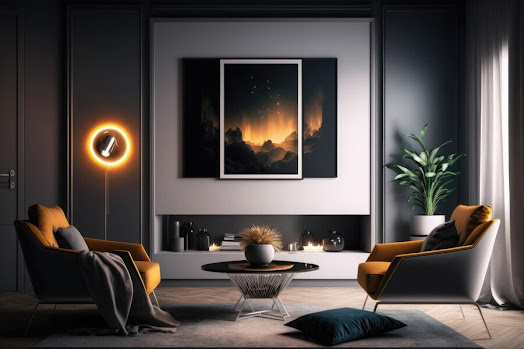Furniture Unveiled: Navigating the World of Design Dreams and Luxury Elegance
Furniture isn't just about functionality; it's a reflection of personal style and a key element in creating a harmonious living space. In this blog, we'll embark on a journey through the vast and diverse furniture landscape, exploring the Furniture Market Size, the allure of luxury furniture, the sustainable allure of used furniture, the ever-evolving home furniture segment, and the intriguing concept of furniture rental. Join us as we delve into the world of design dreams.
A Giant Industry
The Art of Luxury Furniture Elegance
Luxury Furniture represents the epitome of style and
elegance. It caters to those who appreciate exceptional craftsmanship, unique
designs, and top-tier materials. The Luxury Furniture Market Size is a
reflection of the demand for opulent pieces that elevate interior spaces to new
heights of sophistication.
Key elements in the Luxury Furniture Market include:
Exquisite Craftsmanship
Luxury furniture is known for its
impeccable craftsmanship, often involving intricate details and high-quality
materials.
Unique Design
Luxury pieces are typically
designed by renowned designers, making them unique and exclusive.
Premium Materials
Materials like fine wood, leather,
and precious metals are commonly used in luxury furniture.
Artistic Appeal
Luxury furniture often doubles as
art, making it a centerpiece in any room.
Used Furniture Market Size a Sustainable Chic
In an era of sustainability, the Used Furniture Market has
gained significant traction. It caters to consumers who seek quality furniture
without contributing to overconsumption or environmental harm. The Used
Furniture Market Size reflects the growing appreciation for pre-loved pieces
with character and history.
The Used Furniture Market's growth is attributed to:
Sustainability
Buying used furniture reduces the
demand for new production and the associated environmental impact.
Unique Finds
Used furniture stores are treasure
troves of unique and vintage pieces that add character to any space.
Cost Savings
Buying used furniture is often
more affordable than purchasing new items, making it a budget-friendly choice.
Upcycling Opportunities
Used furniture can be transformed
with a bit of creativity and DIY skills.
Personalized Comfort
The Home Furniture Market encompasses an extensive range of
products that cater to various living spaces. From living rooms to bedrooms and
kitchens, this segment reflects the desire for comfortable and functional
furniture. The Home Furniture Market Size is influenced by the diversity of
consumer needs and style preferences.
Key attributes in the Home Furniture Market include:
Functionality
Home furniture is designed to
serve practical purposes while also enhancing the aesthetics of a space.
Style Versatility
A wide range of styles, from
modern and minimalist to traditional and eclectic, are available to suit
individual tastes.
Customization
Many home furniture manufacturers
offer customization options to allow consumers to create personalized pieces.
Durability
Durability is a key factor in home
furniture, ensuring that the pieces can withstand everyday use.
The Future of Rental Market Flexibility
The Furniture Rental Market is gaining ground as consumers
seek flexible and cost-effective solutions for furnishing their living spaces.
This market allows individuals to rent furniture for temporary periods,
catering to a growing need for mobility and adaptability.
Key components of the Furniture Rental Market include:
Temporary Living
Furniture rental is popular among
individuals living in temporary arrangements, such as rented apartments or
furnished corporate housing.
Affordability
Renting furniture can be more
budget-friendly than purchasing, especially for short-term needs.
Style Choices
Furniture rental services offer a
range of styles and designs to match diverse preferences.
Environmental Considerations
Renting furniture can be an
eco-friendly choice, as it reduces the demand for new furniture production.
Conclusion
The furniture landscape is a vast and diverse realm that caters to a wide range of tastes and needs. From the opulence of luxury furniture to the sustainability of used furniture, the furniture market offers a variety of choices for consumers. Home furniture provides comfort, functionality, and the opportunity for personalization, while the concept of furniture rental is shaping the future of flexibility and adaptability. As consumers continue to seek both style and sustainability, the furniture landscape will evolve to meet these ever-changing demands, making design dreams a reality for all.
You can also read about : The Baby Equipment Revolution: What's Hot for Parents Today





Comments
Post a Comment